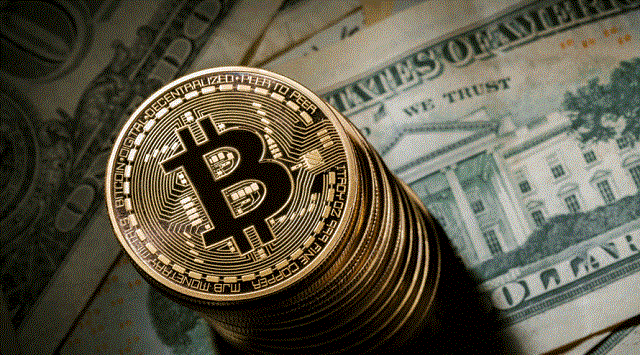
HONG KONG/SEOUL: Bitcoin, battered by warnings about volatility and bubble-like appreciation, may have found a way to play a niche role in a big market: overseas money transfers.
Used as a transfer mechanism rather than a currency, bitcoin circumvents banks’ transaction fees.
Start-ups such as Bitspark in Hong Kong, and Bloom, Payphil, coins.ph and Satoshi Citadel Industries’ (SCI) remittance unit Rebit in Philippines, are trying to turn that into a business model.
Reduced liquidity on cryptocurrency exchanges and regulatory uncertainty are, for now, limiting monthly bitcoin-based remittances to millions of dollars in a multibillion-dollar market, the start-ups say. But if cryptocurrencies mature, they say, traditional businesses will be in for some serious disruption.
“Bitcoin is so much better as a mechanism to send money around the world,” said George Harrap, chief executive of Bitspark, a company that performs transfers for dozens of remittance shops in Hong Kong, Philippines, Indonesia, Vietnam, Pakistan, Nigeria and Ghana. “There’s a lot less overhead that you need to do.”
Many of the start-ups, such as Bitspark, do not deal directly with individual customers, but instead provide the “back end” transfer mechanism for remittance shops.
Japan’s cryptocurrency exchanges to set up self-regulatory body
The businesses estimate how much money they will need for a day, buy bitcoin in advance and immediately sell it for the currency in the receiving country. That means they do not hold cryptocurrency for any meaningful length of time, and customers’ transactions are resolved in minutes, rather than days.
Kate Corporal, 28, a Filipina working at an international company in Incheon, South Korea, said she saved “huge” amounts sending money home using Rebit compared with traditional services.
“One thing I can guarantee is that the money I intended to send and the money that my family received was exactly the same,” Corporal said. “Using bitcoin is really helpful for many Filipinos … as every single cent that we send can be very significant.”
Reduced demand for cryptocurrencies in smaller economies often means bitcoin prices are lower, so sending $100 to Indonesia or the Philippines via bitcoin results in the equivalent of more than $100 at the other end. Without the bank fees, the shops say they can charge their customers 25 to 75% less.
But the model has little to no advantage in markets with larger Filipino communities such as Hong Kong and Singapore, where competition is high and fees are low – roughly 1-2%, compared with 10-15% in South Korea.
Rebit sends money to Philippines mainly from South Korea, Japan and Canada and is looking to expand to the Middle East.
Liquidity problems
The giants Western Union and Moneygram, which dominate the current market, are testing Ripple’s XRP, a cryptocurrency smaller and more centralised than bitcoin.
Singapore looking at investor protection rules for cryptocurrencies
But the industry’s transformation does not appear imminent.
The value of all bitcoin held globally is about $160 billion, roughly two-thirds of the Asian remittance market and a third of the global one, according to World Bank estimates. That means local cryptocurrency exchanges cannot cope with the cash flow needs of larger businesses.
“As soon as you’re doing $10-15 million a day, liquidity becomes an issue and you’re wondering, ‘how am I going to do this,’” said Prajit Nanu, chief executive and co-founder of InstaReM, which remits money to over 60 countries.
The start-ups avoid holding bitcoin for more than a few minutes because of its volatility.
Bitcoin now trades around $10,000, 10 times higher than a year ago, but half its December peak – a common swing for the emerging asset class.
Congress sets sights on federal cryptocurrency rules
“We started in 2014, when bitcoin crashed from $1,000 to $200-$300 and luckily our business model didn’t rely on speculation,” said SCI co-founder Miguel Cuneta.
“We are merely using it as a transfer mechanism,” he added. “We convert it as soon as possible.”
Unclear rules
Cuneta says Rebit was only approved by Philippine’s central bank last year. South Korea’s backing away from banning cryptocurrency trading was encouraging, he said, but more clarity was needed in Seoul and elsewhere.
In Singapore, start-up Toast gave up using bitcoin for remittances so it could get licensed. It is now transferring money the traditional way but plans to offer loans and insurance using blockchain technology and smart contracts – a product offered by bitcoin’s main rival ether and others.
“If you bought cryptocurrency as part of a money remittance mechanism it is very difficult to get your remittance license in Singapore or anywhere else because the regulators are still not sure how they are going to govern cryptocurrency,” said Aaron Siwoku, Toast’s founder.
Breaking: Trustee Of Infamous Mt. Gox Denies BTC, BCH Sales Affected Crypto Markets
aypal Users Receive Cryptocurrency Warning Email
“I am a PayPal user,” David Veksler of the Foundation for Economic Education and The Atlanta Bitcoin Embassy explained to News.Bitcoin.com. “My account is 17 years old. This morning I got the email linked in my message.” Friday, March 16 Mr. Veksler, and presumably a sizeable chunk of Paypal’s nearly 200 million users, received an official-looking email seemingly from the company, complete with letterhead, titled Cryptocurrency Warning.
The two decades-old popular online payments system includes founders such as Peter Thiel and Elon Musk. The company’s revenue routinely ranks in billions, and it operates in over 200 markets and in 25 currencies around the world. Paypal is often seen as a direct competitor to cryptocurrencies, which wish to remove its centralized business model from everyday transactions. The company has made conflicting statements about crypto in general and bitcoin in particular, but there’s no denying they can see the future, as just this month it was discovered the company applied for crypto-related patents.
Paypal Users Receive Cryptocurrency Warning Email
After appreciating their business, the receiver of Cryptocurrency Warning was scolded: “While reviewing your account, we noticed that your activity involves the trading or transfer of crypto currency which is prohibited under our Acceptable Use Policy. As this is not permitted on the Paypal platform we ask that you cease any activity that results in the trading or transfer of crypto currency. If you continue to engage in this activity on Paypal, we’ll be unable to continue offering our services.”
“It appears to be legit,” Mr. Veksler worried. “I checked the from address and the DKIM. Then I called Paypal support and got a [customer service representative] on the line. She said that from the email address, it does not appear to be legitimate. She then checked my account and said that it is fine – there are no flags of any kind on it. I then posted on the Paypal community site and Reddit, and a bunch of people replied saying that they got